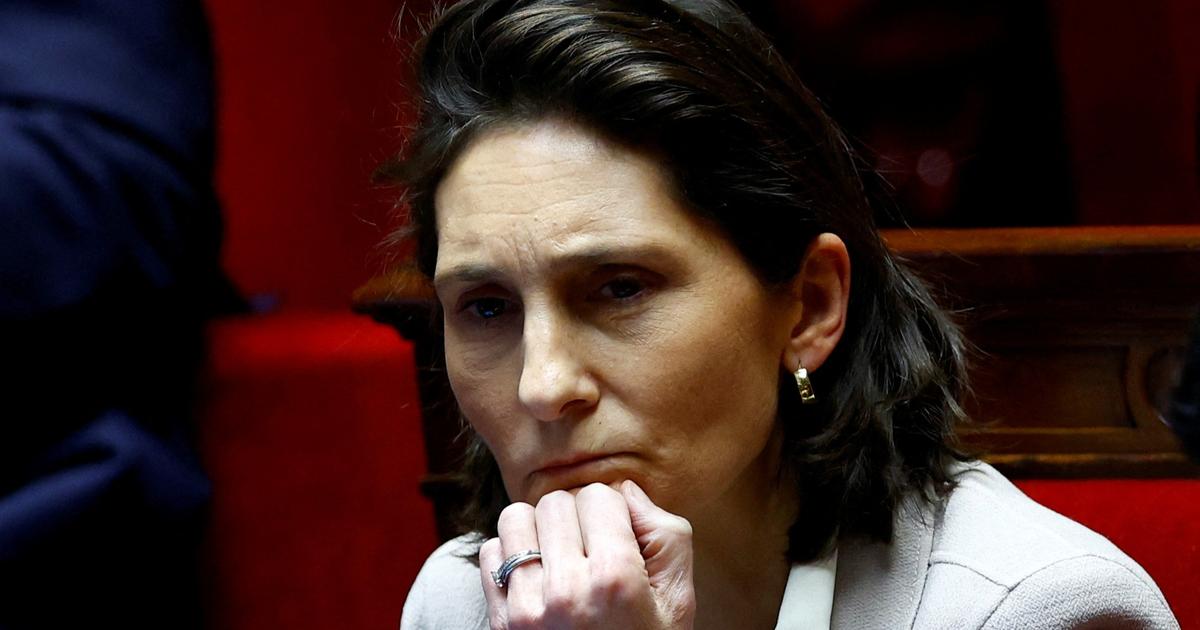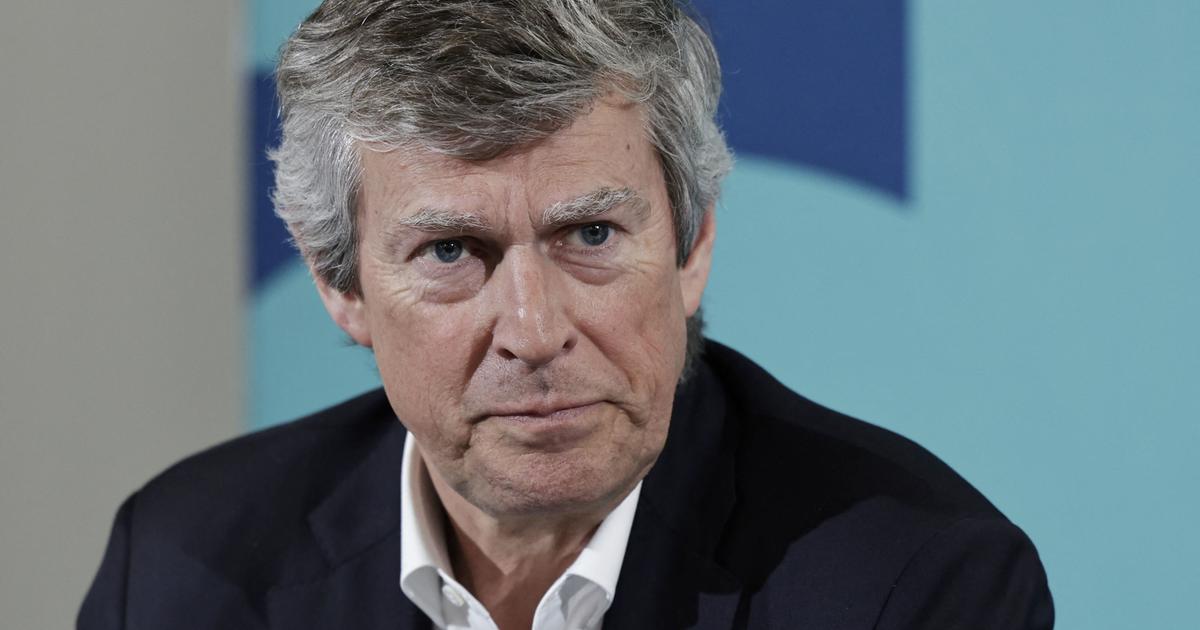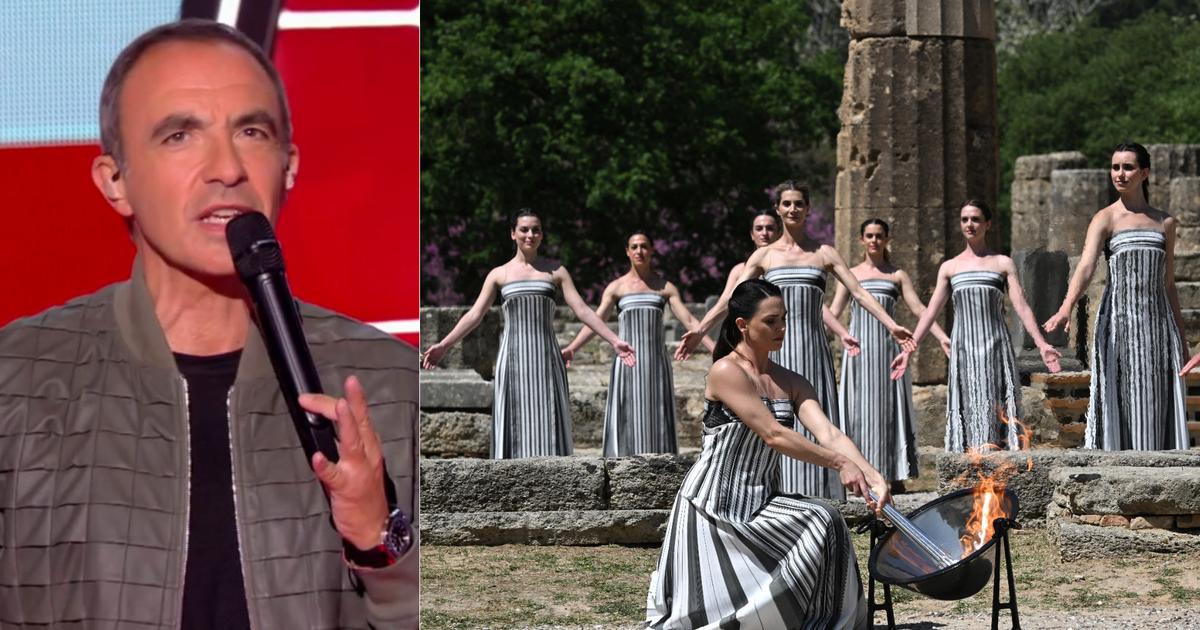Olympics in Beijing: In the end, even the IOC sees a “problem”
Created: 02/20/2022, 10:10 am
By: Christiane Kuehl
IOC President Thomas Bach expressed rare criticism of host China at his press conference in Beijing on Friday.
© Salvatore Di Nolfi/KEYSTONE/dpa
The most political Olympic Games since the Cold War are over.
China's head of state Xi Jinping used them for diplomacy.
There was rare trouble with the IOC over Taiwan.
Beijing/Munich — Exciting competitions, a falling number of corona infections in the Olympic bubble and finally even natural snow: At the end of the Olympic Winter Games* in Beijing, most athletes were quite satisfied with the facilities and despite all the difficulties, such as the isolation caused by the pandemic Organization.
They even came to terms with the somewhat relaxed atmosphere of the Corona games.
A feared surveillance scandal also did not materialize for the time being.
Nevertheless, politics cast a shadow over the 2022 Olympics - not only because of concerns about a Russian invasion of Ukraine.
The political questions centered around the host China*, also in sports reporting on German television.
Major issues such as human rights violations in Xinjiang and Hong Kong, the official or de facto diplomatic boycott of many Western countries, the role of the IOC or the public solidarity of Presidents Xi Jinping and Vladimir Putin* at the opening of the games contributed to this, as did small things Edge - such as the debate about the possible double pass of the American-Chinese exceptional athlete Eileen Gu.
Winter Games in Beijing: Xi uses Olympics for diplomatic offensives
The Chinese government was a little taken aback by the absence of government representatives from many democratic states.
But at the opening ceremony she went through the Olympic program with all its good news about the unifying effect of sport, as if everything were the same as always.
Xi Jinping* also used the occasion for a diplomatic offensive: High-ranking political representatives from at least 30 countries had traveled to Beijing despite the boycotts of others and the pandemic.
Above all, Vladimir Putin's demonstrative presence upgraded the Olympic opening ceremony from Xi's point of view.
China basically backed Russian security concerns in Eastern Europe in a joint statement at Xi's meeting with Putin;
Russia in exchange for China's claim on Taiwan.
According to experts, however, China still fell short of explicit support for Russia's Ukraine policy.
The language of the document reflects Beijing's priorities more than Moscow's, says Helena Legarda, security expert at the Berlin Merics Institute.
"It's a sign of unequal power relations between the two countries." In the increasingly close cooperation between Russia and China, the balance of power could tilt even further towards Beijing, according to Legarda.
Poland was the only EU member state to send its head of state to the opening of the Olympics.
President Andrzej Duda met bilaterally with Xi — much to the displeasure of the US.
Another coup that hardly anyone noticed: Argentine President Alberto Fernandez signed a declaration of intent in Beijing for his country to participate in China's New Silk Road*.
He praised Beijing's massive infrastructure program as an opportunity to reduce Argentina's dependence on the United States and the IMF.
The risk of Argentina defaulting is currently high.
For Beijing, the geopolitical-strategic move is therefore not without economic risk.
But the Silk Road is now in any case also placed in South America: A political gain.
Olympics in Beijing: Criticism of the human rights situation never stops
The start of the competitions then shifted attention to the sport.
But activists kept raising the issue of human rights.
Representatives of Uyghur or Tibetan organizations, for example, spoke of "genocide games"*.
Other critics called for never again awarding the Olympics to a country with such serious human rights abuses.
For years, the IOC has been criticized in democratic states for its refusal to name Chinese human rights violations or to position itself politically at all.
Shortly before the end there was an uproar, which was then too much even for the tolerant IOC.
At an IOC press conference with the Olympic Organizing Committee BOCOG on Thursday, BOCOG spokeswoman Yan Jiarong repeatedly interrupted IOC spokesman Mark Adams: When Adams responded somewhat ambiguously to a reporter's question about the participation of the four Taiwanese athletes in the closing ceremony, she interrupted him and, speaking in Chinese to the international crowd of press, declared the island an “inseparable part” of the People's Republic.
A little later she called reports about systematic forced labor by Uyghurs in Xinjiang* a "lie".
These are Beijing's well-known positions.
However, Adams later described the statements as "Madame Yan's view" that was "not relevant" to the IOC.
According to a
Wall Street Journal
report, the IOC even called an emergency meeting.
IOC chief Thomas Bach, much reviled for his soothing attitude, called Yan's statements on Friday a "problem."
IOC and BOGOC had reaffirmed "the unequivocal commitment to remain politically neutral".
China's image in the democratic West has not improved as a result of the games anyway - Yan's aggressive appearance may not have been of much help.
Taiwan also in a delicate position at the Olympics in Beijing
Taiwan* always takes part in the Olympics under the compromise formula "Chinese Taipei" accepted by Beijing and under the IOC flag.
The island's athletes initially declined to attend the opening ceremony due to growing political pressure from Beijing on Taipei.
The IOC, however, remained stubborn, so that in the end two athletes marched into the Olympic Stadium with the flag.
A few days later, one of the two, speed skater Huang Yu-ting, caused trouble at home by posting a video on social media of herself training in a Chinese national team uniform.
A shit storm on the internet followed immediately.
Huang defended that she was given the uniform by a friend from the Chinese team.
She deleted the video but showed no public remorse.
As a result, many in Taiwan celebrated their poor results in the competition.
Nothing is harmless at the Beijing Olympics.
Olympic superstar Eileen Gu caught up in geopolitics
China's US-born ski freestyle superstar Eileen Gu* has also found that there is no non-political zone at these games.
By changing the flag from the USA to China, the 18-year-old has entered a political minefield.
In the US, conservatives in particular accuse her of “treason”.
In the past, many athletes from the USA competed for the countries of their ancestors, notes Lincoln Mitchell, sports expert at the School of International and Public Affairs at Columbia University in New York: "But there was never an outcry like with Gu .” This can only be explained by the intensity of the system competition between the two powers and the criticism of China's human rights violations.
Two golds, one silver: The Chinese-American ski freestyle ace Eileen Gu © Peter Kneffel/dpa
The fact that Gu did not speak out on the subject of human rights raised suspicions in the West.
But if the 18-year-old would continue to start for the USA, nobody would have asked her about it - on the contrary: foreign athletes were specifically warned of the risks of political statements* during their stay in Beijing.
Conversely, Chinese athletes like the new snowboard teen star Su Yiming don't get any questions about political issues, because criticism would put them in even greater danger.
Does she have two passports?
Gentle criticism of Eileen Gu also in China
But even in China, the excitement about Gu's three medals was mixed with a debate about her unclear citizenship and a bit of resentment about her privileged life.
Dual citizenship is actually banned in China — and Eileen Gu is silent on whether she kept her US passport.
Pointless statements by the 18-year-old about internet censorship in China repeatedly triggered criticism and debates on China's social media platforms.
"It was two weeks with the most intense highs and lows I've ever experienced," said Eileen Gu on Friday after her second Olympic victory* in the halfpipe: "My life has changed forever."
In any case, Gu's case shows that the much-maligned "politicization of sport" has long been a reality.
Whether awarding the games to Beijing will be a lesson for future IOC decisions is still open.
So that the Olympics can no longer be awarded to dictatorships, democratically governed countries would have to apply for the games in the future.
But there is often a lack of support from the population: In Germany, for example, the citizens of Garmisch-Partenkirchen, Munich and Hamburg recently rejected Olympic applications from their cities.
At least one thing is clear: the upcoming 2026 Winter Games in Milan and Cortina d'Ampezzo should provide significantly less explosive fuel.
(ck) *Merkur.de is an offer from IPPEN.MEDIA.









